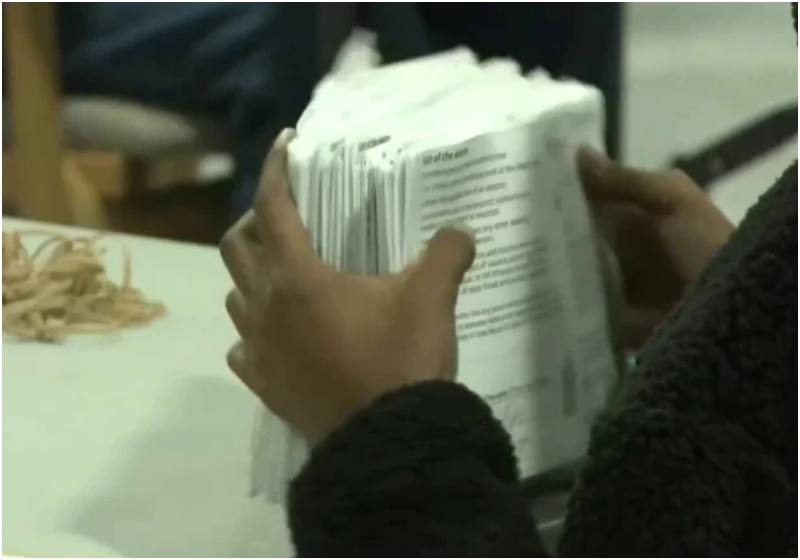In a significant shift for the state’s election process, the Georgia State Election Board has approved a new rule requiring all paper ballots to be counted by hand in the upcoming November election.
The rule mandates that three sworn poll officers independently count each box of ballots to ensure accuracy. Any discrepancies between the hand count and recorded totals must be documented and addressed by the poll manager before results are finalized.
The stated purpose of this rule is to enhance the security, transparency, and accuracy of ballot counting.
The board aims to implement a “systematic process” where ballots are reviewed by multiple poll officers to reduce the risk of errors or fraud.
Controversy Over Hand Counting
Georgia now stands as the only state in the U.S. to implement a hand-counting rule for all ballots. This development comes amid broader debates about election security and transparency across the country.
Hand counting ballots is traditionally used in small, single-precinct municipalities, and less than 0.2% of U.S. voters were subject to this method prior to the new Georgia rule.
However, the process is labor-intensive and expensive. For example, Mesa County, Colorado, hand-counted ballots during its 2021 general election, which took approximately one week and cost around $80,000. Critics argue that these costs, combined with the potential for human error, could undermine the very goals of the new rule.
The Campaign Legal Center has been vocal in its opposition, stating that hand-counting ballots as the primary method could “weaken the electoral system by introducing a greater degree of human error.”
The organization also expressed concerns about the length of time it will take to process ballots, which could delay results and create opportunities for individuals looking to cast doubt on election integrity.
In 2022, the Campaign Legal Center argued that increasing reliance on hand counts could prolong the reporting of election outcomes, thereby “increasing opportunities for politicians who want to sow distrust in our elections and rig the rules of the game to work in their favor.”
Implications for Georgia Elections
The Georgia State Election Board, consisting of five members, is responsible for ensuring the legality and uniformity of the state’s election practices.
In passing this rule, the board emphasized its commitment to protecting the right to vote and ensuring the integrity of the electoral process.
The new hand-counting requirement will undoubtedly shape the state’s election operations, as election officials brace for the potential challenges of increased costs, extended counting periods, and public scrutiny.

